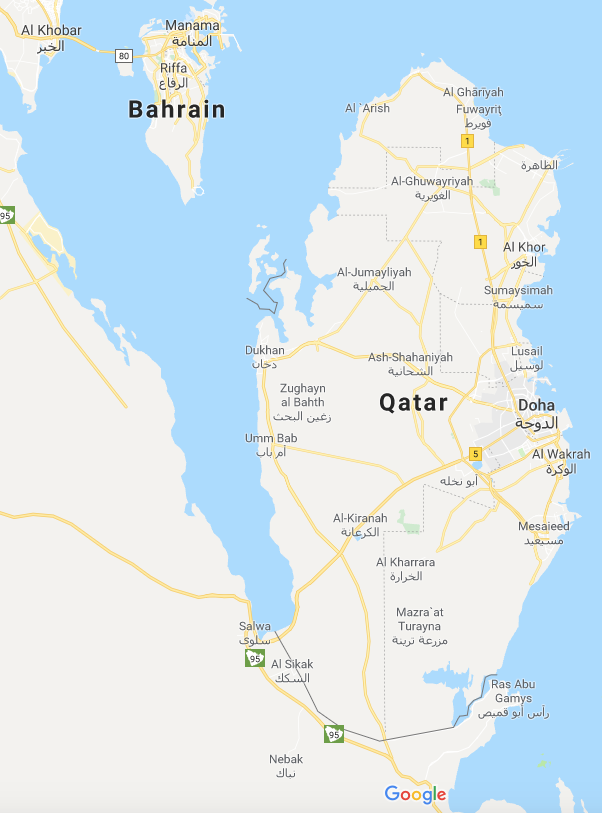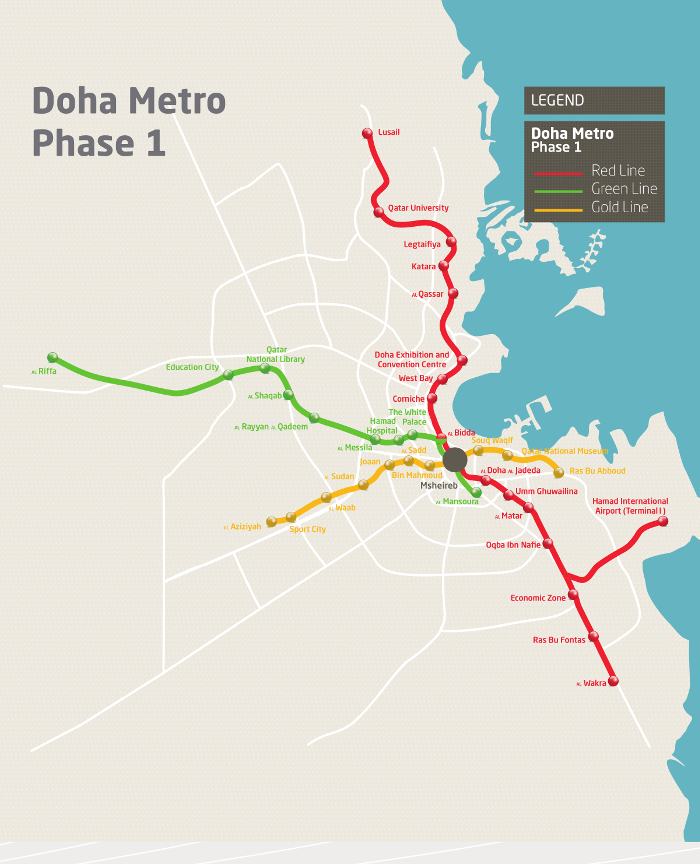Tax Professional's Guide to relocating to Qatar
Background
Qatar is a sovereign country located in Western Asia. Its sole land border is with Saudi Arabia to the south, with the rest of its territory surrounded by the Persian Gulf.
The country is a hereditary monarchy and its head of state is Emir Sheikh Tamim bin Hamad Al Thani. Qatar's total population is around 2.6 million: comprising only 313,000 Qatari citizens and 2.3 million expatriates.
Qatar is a high-income economy, primarily because it has the world's third-largest natural-gas reserves and oil reserves. As a result the country has the highest per capita income in the world.

Employers
The Big 4 accounting firms all have a presence in Doha and almost all tax professionals working in Qatar are employed by PwC, KPMG, PwC or EY.
To view current tax jobs in Qatar please follow this link: https://www.etaxjobs.eu/browse-jobs/europe-middle-east-and-africa-tax-jobs/qatar-tax-jobs/
Living and Working in Qatar
Expatriate workers are required to have a residence permit in order to live and work in Qatar. The permit is granted to expatriates who hold employment contracts in Qatar and it is usually the responsibility of the sponsor to handle all the paperwork involved in obtaining the residence permit.
The British Government has put together a useful summary of things you need to know before moving to Qatar. These guides are not UK specific and will be relevant to anyone who is intending to relocate: https://www.gov.uk/guidance/living-in-qatar
Qatar is built on generations of Islamic traditions. These traditions have been passed down from generation to generation and form the very cornerstone of everyday life for a Qatari family. The Qataris are welcoming people who show tolerance and an open minded approach to visitors in their country and embrace change; but their culture and values should always be respected.
It is important to note that Qatar has a zero-tolerance policy towards drinking and driving. You can be charged and imprisoned if you are caught with even the smallest amount of alcohol in your system.
Taxation
Qatar operates a territorial taxation system, which means an individual should be taxable in Qatar if they have generated qualifying Qatar-source income, regardless of their tax residence.
Income tax is not imposed on employed individuals' salaries, wages, and allowances.
Source: http://taxsummaries.pwc.com/ID/Qatar-Individual-Other-taxes
Schooling
In Qatar there are
1) independent schools (state-funded schools) and
2) private schools
Independent schools have the autonomy to recruit teachers and staff and establish their own methods of teaching. Independent schools are free for Qatari citizens. Non-Qatari enrolments are subject to individual school policy.
Private schools operate either as commercial establishments or non-profit community schools sponsored by their embassies. Private Schools are free to set their own curriculum, however, all schools are required to meet the standards of the Qatar National School Accreditation system. The Qatar International School and the Doha British School are both popular.
More information can be found on the Qatar Government website http://portal.www.gov.qa/wps/portal/topics/Education+and+Training
Transport
Taxis are the most popular means of transport, especially within the capital. However, due to their popularity it can become difficult to hail one during peak times.
Doha Metro is considered to be the biggest public transportation project in the Middle East and it will connect the capital and the suburbs (see map). At the time of writing this, the first phase will be completed in 2020, which will have a big impact on the (cheaper) rental options outside of Doha.

Accommodation
The most popular area for expats is Doha itself. Accommodation is currently the one major expense when living in Qatar. However, the Doha Metro will inevitably reduce housing costs for expatriates happy to commute into work from the suburbs.
At the top end, a two-bedroom apartment in a glistening high-rise in West Bay or the Pearl (Qatar’s man-made island) will cost at least 12,000 QR a month. If you move out to the suburbs you will make substantial savings. Some companies offer a housing allowance which will be included in your relocation package or they may have prearranged accommodation for you in one of the compounds.
Here is a useful website to browse: https://www.propertyfinder.qa/
Health
Qatar has a well-resourced state health care system, Hamad Medical Corporation, which offers free emergency treatment to everyone who registers - expats included. However, it is increasingly under strain and long waiting lists for treatment is now commonplace. Many expats therefore opt for private healthcare if it is not already part of their employment contract.
For access to the government healthcare system, which you may need to use even with private healthcare, residents must apply for a government health card. Cards can be purchased or renewed at clinics or online at the official portal of the Qatar Government.
If you are considering a move to Qatar and want to have a chat with a specialist tax recruiter, please get in contact with Kingpin International.















